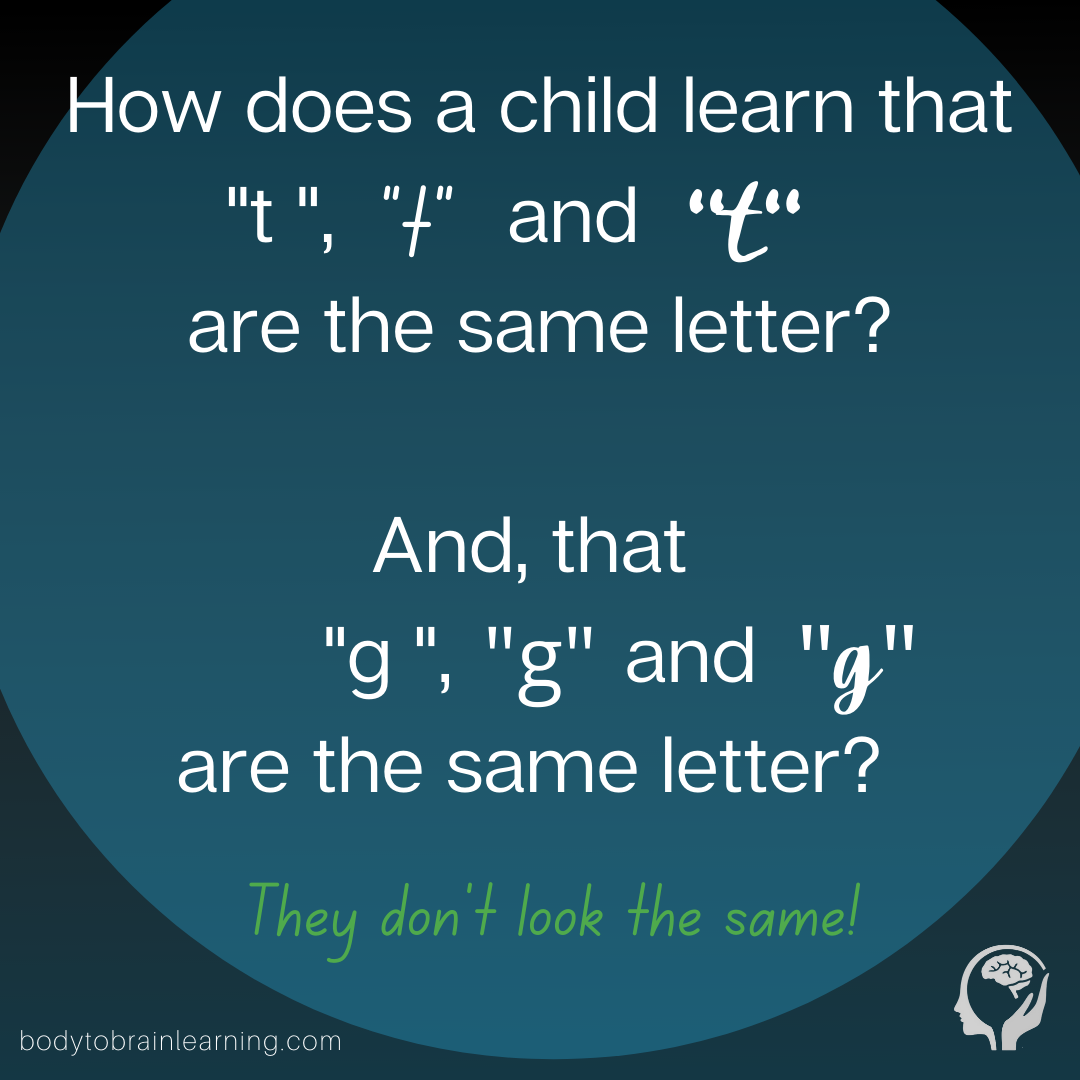Learning to Read: It's Complicated
Jan 25, 2022
I was the child who could read a word on one page but could NOT read it on the next page. I know it frustrated my mother incredibly. In fact, my father jokes that learning to read was treacherous for me and I was lucky to survive because it was so infuriating for those who were helping me learn!
Can you relate? Do you know a child like that? Yes? Well then, one word of advice, please be patient. Here's why: Reading is a highly complex task, cognitively AND physiologically.
Reading Requires Mature Body Systems:

Successful reading requires mature body systems that support reading. It requires more than just concentration and paying attention to the story we are reading. In fact, those processes come later when we can actually read. Let me explain a little bit about what I mean.
To read well, we need well-developed ocular-motor skills, accurate and consistent visual perception, and the ability to match visual symbols and letter combinations with sounds. We also need to make meaning out of those squiggles and symbols and their combinations on the page (letters, words, sentences). That involves other processes and brain functions, including cognitive (thinking) activities. Once we have mastered those body-based activities and cognitive connections, then we can start to become fluent in identifying and interpreting script on a page to make meaning in our head (comprehension), and we can start to learn from the text on the page (reading).
Sounds like…
Sometimes reading can be confusing because the same letters and letter combinations sound different when they are in another word, e.g. "ou" sometimes sounds like "ooo" (in 'you'), and sometimes it sounds like "ow" (in 'sound').
We need to learn to identify those differences and when and where they happen in language. Unfortunately, phonetics of English isn't the easiest to learn because of these sorts of quirks and characteristics of how we represent sounds in written form. (Phonetics is, basically, the study of speech sounds, their production and combinations, and how we represent those with written symbols.) And that's why "sounding out words" can sometimes be frustrating and tricky for a new reader.
Looks like…
If our eyes aren't consistently working well together, a "b" on one page may look like a "d" on another. That changes things for a new reader!
Sometimes our eyes aren't actually pointing at the same word or letter, and that sends different messages to the brain, which is also confusing. Sometimes it seems like the words may be moving or "swimming" on the page. There are many visual distortions that can happen.
A child isn't usually aware that others who can read don't see the page the way they do. Sometimes different fonts can confuse children's ability to identify letters and their corresponding sounds. Have you ever had trouble reading cursive (running writing) but no problems reading print? Letters can look different in different fonts, yet they are the same letter.

It's not about intelligence.
When a child has difficulties reading (like I did), it is not a reflection of their intelligence. It is more likely a reflection of something going wrong in the reading process.
We aren't born with a fully mature body system capable of undertaking the complex task of reading. We learn to read and train our bodies to discern and understand the characteristics of our language in written form. It's complex.
Initially, our body needs to develop the foundational skills and processes to support us in our reading, writing and learning tasks. That takes time. It requires developmental movement sequences and opportunities that most of us experience in our first 3 – 5 years of life. It requires opportunity, and, it may require support if it isn't mature by the time we are at school.
Supporting the reading body:
If a child/student struggles with reading, it's worth asking a professional who understands the physiology of learning, developmental patterns, and the complexity of reading for some advice. The child/student may need some support because, if their body isn't fully supporting the reading and learning process, it may actually be interfering with the reading and learning process. In that case, the body can be helped to support the learning and reading processes.
Success in our school system requires success in reading and writing.
We need to understand how the body helps support those tasks because learning doesn't just happen in the brain. It happens in and through our bodies. It's a body to brain learning process.
Understanding and applying the Body to Brain Learning™ process helps students and teachers attain better academic learning outcomes. It impacts wellbeing at school and can help support neurodiverse students and those who work with them. It also assists those who are underachieving academically and are experiencing learning challenges because of neuromotor and sensory immaturity.
LEARN MORE and STAY INFORMED
If you would like to learn more about the Body to Brain Learning™ process and join in the conversation, then sign up for regular updates, training information and other 'neuro-nerd' learning facts using the button in the section below.
You can also follow us on Facebook, Instagram and Linked In. Please join in the conversation there. Body to Brain Learning™ is part of Integrating Thinking Neurodevelopmental Education Consultancy.
Dr Christine Payard (PhD) is a Neurodevelopmental Educator, founder of the "Body to Brain Learning™ Professional Development Series", Director of "Integrating Thinking" and the INPP Australia Principal.
She is an experienced teacher, a passionate educator who could talk all day about learning, how we learn, the body, the brain, and a functional and developmental approach to learning.
Learn more:
Stay connected with news and updates!
Join our "Integrating Thinking" and "Body to Brain Learning" mailing list to receive the latest news, updates & training information from us.
Don't worry, your information will not be shared with others.
We HATE spam, so you won't be inundated with emails from us.


